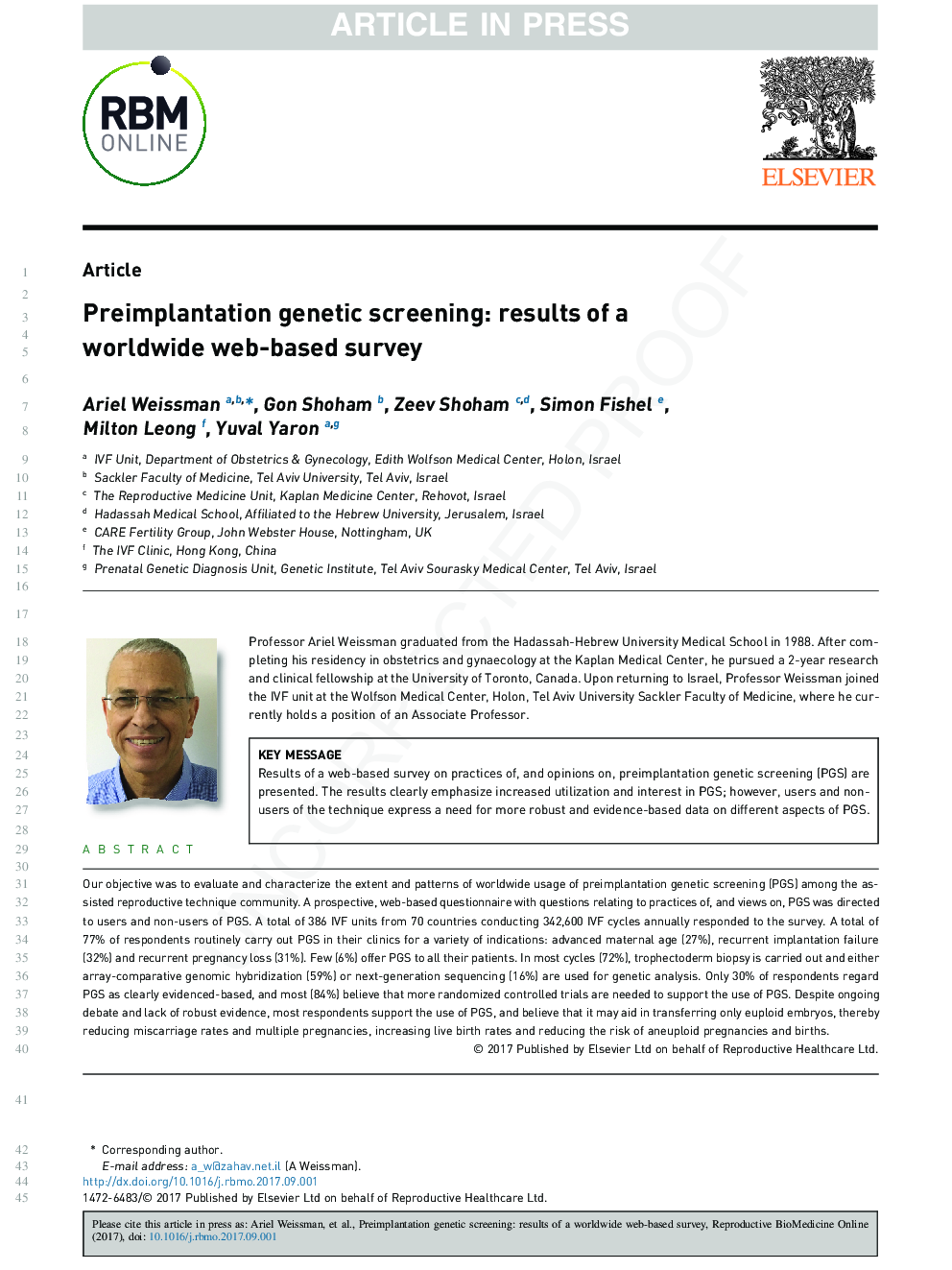| Article ID | Journal | Published Year | Pages | File Type |
|---|---|---|---|---|
| 8784122 | Reproductive BioMedicine Online | 2017 | 8 Pages |
Abstract
Our objective was to evaluate and characterize the extent and patterns of worldwide usage of preimplantation genetic screening (PGS) among the assisted reproductive technique community. A prospective, web-based questionnaire with questions relating to practices of, and views on, PGS was directed to users and non-users of PGS. A total of 386 IVF units from 70 countries conducting 342,600 IVF cycles annually responded to the survey. A total of 77% of respondents routinely carry out PGS in their clinics for a variety of indications: advanced maternal age (27%), recurrent implantation failure (32%) and recurrent pregnancy loss (31%). Few (6%) offer PGS to all their patients. In most cycles (72%), trophectoderm biopsy is carried out and either array-comparative genomic hybridization (59%) or next-generation sequencing (16%) are used for genetic analysis. Only 30% of respondents regard PGS as clearly evidenced-based, and most (84%) believe that more randomized controlled trials are needed to support the use of PGS. Despite ongoing debate and lack of robust evidence, most respondents support the use of PGS, and believe that it may aid in transferring only euploid embryos, thereby reducing miscarriage rates and multiple pregnancies, increasing live birth rates and reducing the risk of aneuploid pregnancies and births.
Related Topics
Health Sciences
Medicine and Dentistry
Obstetrics, Gynecology and Women's Health
Authors
Ariel Weissman, Gon Shoham, Zeev Shoham, Simon Fishel, Milton Leong, Yuval Yaron,
